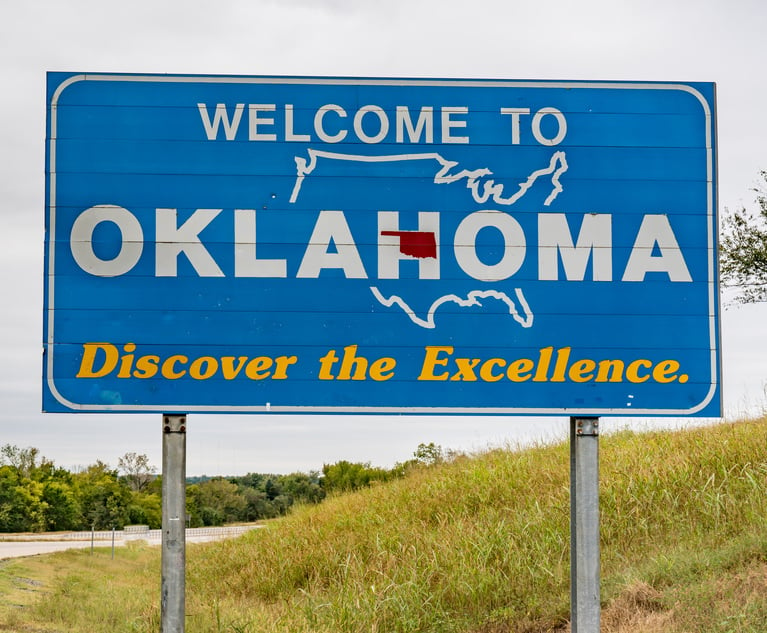 Sam Goldwyn, one of the founders ofMetro-Goldwyn-Meyer (MGM), was reported to have once said, “Youroral contract ain't worth the paper it's printed on.” It's a lessonthat should be hung on the wall of every insurance agent andbroker. Although binders evidencing an insurance policy can beoral, insurance can never be an oral contract.
Sam Goldwyn, one of the founders ofMetro-Goldwyn-Meyer (MGM), was reported to have once said, “Youroral contract ain't worth the paper it's printed on.” It's a lessonthat should be hung on the wall of every insurance agent andbroker. Although binders evidencing an insurance policy can beoral, insurance can never be an oral contract.
Related: Read “Worst of the Best“
|Any contract an insurance agent or broker enters into should bewritten. The agent who enters into an oral contract will findhimself facing someone like old Sam Goldwyn telling him that thereis no chance of enforcing the oral agreement.
|An agent learned the Goldwyn maxim in Richard Wysong v. Farm Family CasualtyInsurance, No. 513866 (N.Y.App.Div. 02/28/2013) where theAppellate Division of the New York Supreme Court refused Wysong'sattempt to collect on an oral contract.
|Richard Wysong, an experienced insurance agent, entered into anagreement with defendant Thomas M. Kolberg, a general agent fordefendants Farm Family Casualty Insurance Co. and Farm Family LifeInsurance Co. (“Farm Family”), “to take custody of” an UlsterCounty book of Farm Family's business.
|The plaintiff and Farm Family then entered into agent contracts.About 7 years later, Farm Family terminated the plaintiff based onhis mishandling of certain matters and transferred the UlsterCounty book of insurance business to another Farm Family agency.Wysong sued for, among other things, unjust enrichment, allegingthat he had purchased the Ulster County book of business and wasentitled to compensation for its transfer.
|The trial court, the New York Supreme Court, granted defendants'motion for summary judgment and dismissed the complaint in itsentirety.
|Related: Read “Flooded With Problems“
|Wysong argued on appeal that questions of fact precluded thetrial court's determination that he did not purchase the UlsterCounty book of business and dismissal of his unjust enrichmentclaim. Wysong did not contest the validity of the agent contractshe entered into with Farm Family which provided, among otherthings, that Farm Family owned all insurance business assigned toor produced by plaintiff and that the book of business may bereassigned to another agent in the event of the plaintiff'stermination.
||Wysong contended that he had a separate oral agreement withKolberg, whereby he purchased the book of business according to theterms of Kolberg's handwritten “fact sheet” listing the incomeearned from the book's policies and the amount that plaintiff wouldbe required to pay Kolberg “to take custody of” it. Plaintifffailed, however, to present evidence sufficient to raise anymaterial issue of fact rebutting the plain, unambiguous terms ofthe agent contracts.
|The written contracts specifically provided that they supersededall prior agreements between the parties and that they representedthe entire understanding and agreement of the parties hereto.Furthermore, any modification of the agent contracts was requiredto be in writing and executed by a duly authorized officer orrepresentative of Farm Family.
|Related: Read “Statehouse Trumps Court“
|The unsigned “fact sheet,” on the other hand, was provided tothe plaintiff prior to his execution of the agent contracts, and itdoes no more than to memorialize his apparent agreement to payKolberg a portion of any commissions earned in order to serveKolberg's former customers. As the agent contracts are clear thatFarm Family owned the book of business, the trial court properlyconcluded that there were no issues of fact as to whether theplaintiff purchased it from Kolberg because Kolberg had no right tosell something he did not own.
|Inasmuch as the agent contracts govern the ownership of the bookof business, the plaintiff cannot recover on an unjust enrichmentcause of action. In any event, the appellate court found no meritto the plaintiff's unjust enrichment claim as he was provided withestablished policies from which he immediately started earningcommissions and, during the course of his time servicing the bookof business, he netted approximately $350,000 in commission incomeafter paying less than $50,000 to for the book of business.
|Analysis
|Oral contracts, if they can be proved, are enforceable. In thiscase Wysong claimed he was entitled to the benefits of what hebelieved were promised to him by an oral agreement evidenced by“fact sheets” presented to him to convince him to enter into thewritten agreement with Farm Family. He signed the writtenagreements and then tried to get around the agreement he enteredinto by claiming an oral agreement.
|Wysong also had the unmitigated gall to claim that the insurerwas unjustly enriched when it took away the book of business—as theagreement allowed—when he had, in fact, earned a net of $300,000from the book of business until he was fired. Therefore, even ifthe contract was written and provable, the court concluded it couldfind no unjust enrichment.
Want to continue reading?
Become a Free PropertyCasualty360 Digital Reader
Your access to unlimited PropertyCasualty360 content isn’t changing.
Once you are an ALM digital member, you’ll receive:
- All PropertyCasualty360.com news coverage, best practices, and in-depth analysis.
- Educational webcasts, resources from industry leaders, and informative newsletters.
- Other award-winning websites including BenefitsPRO.com and ThinkAdvisor.com.
Already have an account? Sign In
© 2024 ALM Global, LLC, All Rights Reserved. Request academic re-use from www.copyright.com. All other uses, submit a request to [email protected]. For more information visit Asset & Logo Licensing.








